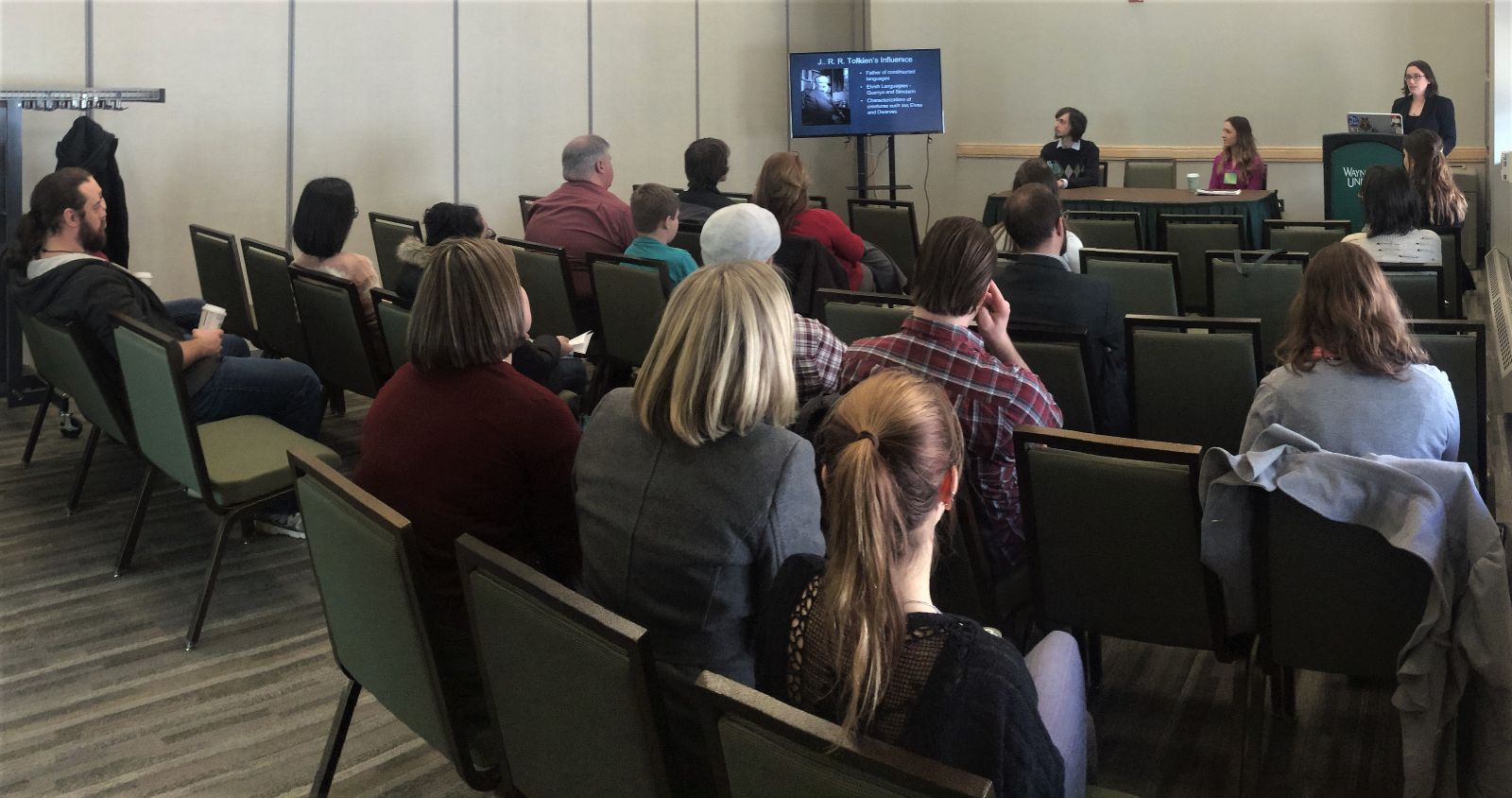Grad students hone presentation skills at 'Transformations' conference
Twenty-four master's and Ph.D. students from Wayne State and universities across the nation presented local and global-themed research at WSU's third annual Graduate Anthropology Conference on March 4. The conference, "Transformations: Bordering Local and Global Lives," was completely organized by WSU graduate students to offer the opportunity to submit their abstracts and present research before an audience.
Students from WSU, University of Washington-Seattle, Purdue University, Kalamazoo College, University of Windsor, University of Notre Dame, York University in Toronto, University of Illinois at Chicago,and Michigan State University covered a wide range of topics from global concepts of community to Detroit's past and present, and sustainability for future.
This year's conference director and WSU anthropology graduate student Kayla Hurd explained that students don't have many opportunities to present at a small-scale conference before talking at a major national or international conference. Hurd, who presented at "Transformations" last year, knows presenting can be a daunting task.
"It's definitely nerve-wracking because you don't know what to put on your slide, you don't know the important way to set up," Hurd said. "You have to talk like you're the expert, but a lot of times being a student, you don't feel like you're an expert there, because sometimes you haven't done the research to the fullest extent yet."

She hopes "Transformations" will offer students a confidence-building experience as it did for her last year when she received positive feedback after her talk. And she hopes it will get students comfortable to talk at future national and international conferences.
Elizabeth Arnold, associate professor of anthropology at Grand Valley State University and this year's keynote speaker, stressed the importance of anthropologists developing the necessary presentation skills at student-run conferences like "Transformations."
"We really need to be able to talk very comfortably to a variety of audiences to get that topic out and why it's important, particularly in today's society," Arnold said. "And it's very difficult to feel comfortable talking ... about difficult subjects: race, class, reproduction, depression, anxiety. You need to feel comfortable, and that takes a lot of practice."
Her advice to students who are beginning to deliver presentations on their research: pretend you're good at it until you are good at it.
John Anderson, a WSU master's anthropology student who researches Old Norse poetry, literature and mythology, presented for the first time in front of an audience at this year's conference. He was one of three students on the panel titled Alternate Forms of Communication. After his talk, Anderson said he was extremely nervous going into the presentation, but that being able to practice building confidence in front of a small audience was well worth it.
"I'm really glad to be able to [present]," Anderson said. "I think it's really a great opportunity. I've always thought about doing it, but just to have [a conference] so nearby, it's a great way to get started. It's a gateway to bigger conferences."